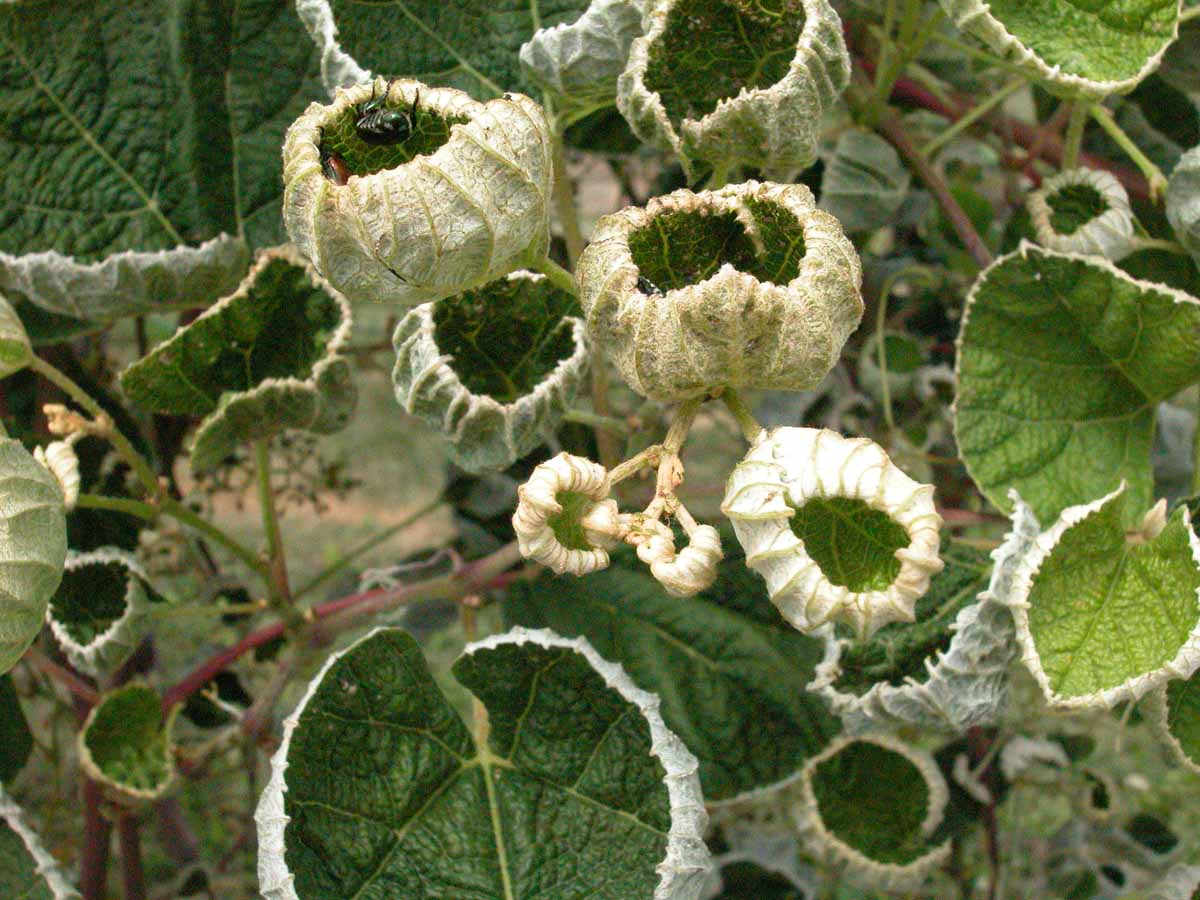Dicamba disaster: herbicide drift damage reports pour in nationwide

By Surya Zeeb
Published: August 2, 2019
Category: The Organic & Non-GMO Report Newsletter, Dicamba Disaster
Farmer says dicamba drift damage is a “real black eye” for agriculture
For the fourth year in a row, drift from dicamba herbicide used with genetically engineered dicamba-tolerant soybeans and cotton is damaging crops, fruits, vegetables, and ornamental trees nationwide.
Jennie Schmidt is an advocate for genetically modified crops but this year her farm, which includes vegetables and vineyard grapes, has been damaged by the Xtend GMO crop system that uses dicamba herbicide. Schmidt’s grape vines have suffered drift damage from dicamba, causing her to lose $50,000 in contracts with local wineries.
“We’ve never had this level of problem before,” she told Progressive Farmer.
Schmidt is not alone in suffering drift damage as has been reported nationwide.
There are an estimated 60,000 acres of dicamba-tolerant Xtend soybean and cotton along with 2,4-D tolerant Enlist soybeans and cotton. Both herbicides are prone to volatizing, turning from a liquid to a gas and causing drift damage to crops miles away.
In Arkansas, dicamba use was banned after May 25, but crop damage reports are still coming into the state’s Plant Board. As of July 23, they had fielded 321 pesticide misuse complaints, of which 121 were for dicamba, 11 for 2,4-D, and another 10 listed as dicamba or 2,4-D. In Indiana, the Office of Indiana State Chemist has fielded 121 drift complaints, with 23 suspected dicamba cases. Missouri’s Department of Agriculture is investigating 18 dicamba complaints and one 2,4-D complaint so far.
In Illinois, Kris Ehler, a sales agronomist, said: “We’re seeing more off-target dicamba movement than we’ve ever seen.”
In east-central Arkansas, Mike Montgomery has experienced multiple years of dicamba damage on his non-Xtend soybeans. He says dicamba is also killing young red maple trees in his yard, along with nearby cypress and oak trees and neighbors’ vegetable gardens.
Montgomery is angry. “This has brought out the absolute worst in people,” he said. “I hate it for agriculture, because it’s a real black eye for us.”
Source: Emily Unglesbee, Progressive Farmer
To view full article, visit:




